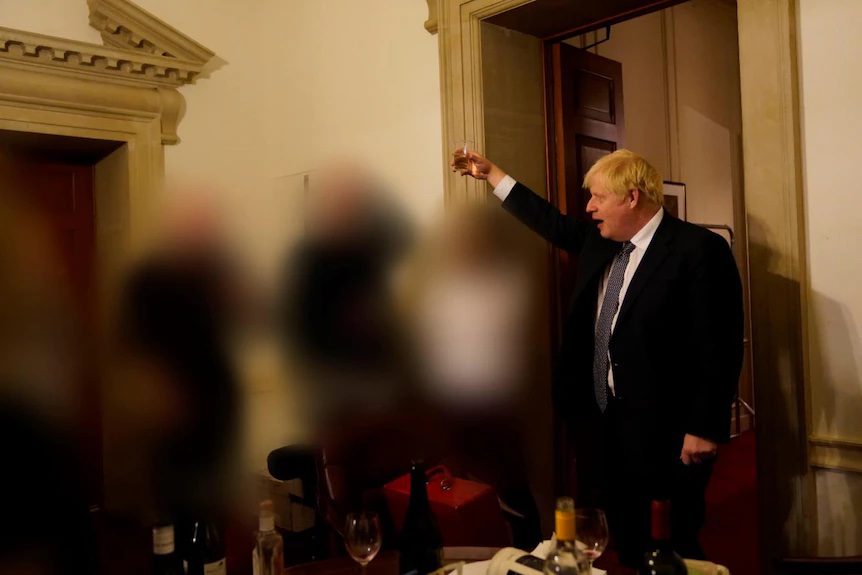
Last week, the police investigation into mid-lockdown parties in Downing Street closed without any further fines. But no sooner had Boris Johnson dodged that bullet than another came his way.
On Wednesday, May 25th, a civil servant named Sue Gray released the findings of a non-criminal probe into the behaviour of those, including the Prime Minister and wider Cabinet, who walk in the corridors of power. According to the Times, Johnson put some pressure on Gray not to make her findings public, arguing that the information—thanks to the police investigation—was already “all out there.” Nevertheless, Gray went ahead, publishing the report in full so that the British people, rather than those in power, can make up their own minds about what they do and do not need to know.
Gray investigated 16 Westminster gatherings, many of which have already led to 126 fines being issued against 83 people, including the Prime Minister and Chancellor Rishi Sunak. However, Sue Gray’s report carries no criminal implications. It is no more than an internal probe by a senior civil servant. The one magistrate to which Gray’s findings are subject, however, is the court of public opinion.
The report aims to provide “a narrative account of how these events came about and what happened when they took place.” Gray includes relevant support evidence for her findings, such as email invitations, photographs, and communications between staff.
The BBC has a useful breakdown of Gray’s treatment of the most politically explosive gatherings—that is to say, those involving the Prime Minister and other senior staff—the timeline of which runs from May 2020 to April 2021.
Perhaps the most damning revelation was the official release of photos of Boris Johnson attending an event in Downing Street to mark the departure of a special advisor on November 13th, 2020. This included at least eight colleagues and alcohol at a time when indoor gatherings of two or more people were prohibited unless “reasonably necessary” for work. While the police investigation has formally concluded, this may still have repercussions for the committee investigating whether Johnson knowingly misled Parliament last year in denying knowledge of such gatherings—a resigning offence. Indeed, in December 2021, the Prime Minister insisted before MPs in the House of Commons that “the rules were followed” at all times when questioned whether there was any truth to rumours of a Downing Street party on November 13th, 2020. In other words, this saga might not yet be over.

PHOTO: CABINET OFFICE
Addressing Parliament, Johnson claimed to have been “humbled by the whole experience.” He said he had learned his lessons and that now, as a country, “we will be able to move on.”
The Labour leader Sir Keir Starmer, presently facing an investigation by Durham Police Constabulary over his own potential breaches of lockdown, called on the Prime Minister to resign in a rousing speech.
Overall, Gray’s conclusion was reasonably damning: “what took place at many of these gatherings and the way in which they developed was not in line with Covid guidance at the time.” She ascribes responsibility to the senior leadership for the culture that allowed such parties to take place: “The events that I investigated were attended by leaders in government. Many of these events should not have been allowed to happen.”
“Many will be dismayed,” Gray finally concludes, “that behaviour of this kind took place on this scale at the heart of Government. The public have a right to expect the very highest standards of behaviour in such places and clearly what happened fell well short of this.”
